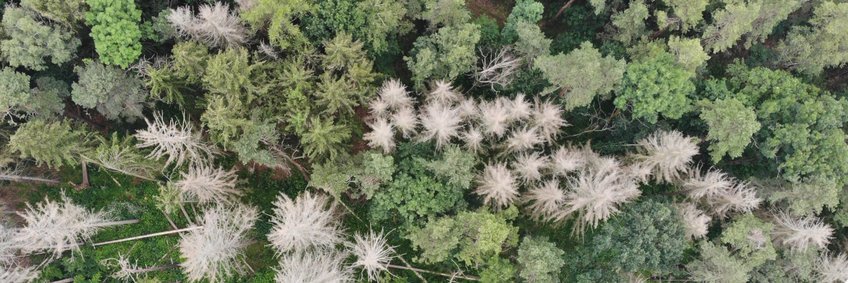
Bark beetle ecology and host selection
Bark beetles are one of the major threats to coniferous forests. This trend is supported by changing climate. Advancing climate change leads to an increased occurrence of weather extremes. Severe droughts or windthrow can increase the vulnerability of spruce to bark beetles, therefore supporting increased mortality of forest. To address this timely threat, we are studying different intersections between the bark beetle Ips typographus and its host Norway spruce.
Bark beetle research is an established field dating back over 250 years ago. Although much is known about the physiology and behaviour of bark beetles, some aspects still remain unexplained. In particular, the mechanisms of host selection are not yet fully understood. It is known that the beetles prefer weakened and stressed trees when selecting a host. We investigate the relationship between vitality and olfactory signals by assessing volatile profiles of the vigorous and stressed trees. Therefore, we perform volatiles measurements in dynamic chamber systems with a mobile GC/MS supported by traditional laboratory techniques (adsorption tubes).
Furthermore, we investigate the influence of beetle infestation and windthrow on defensive compounds (phenolics) and sugars (NSCs) during dispersal and colonization phases of the bark beetles. In addition, we also assess the influence of secondary metabolism on growth and development in bark beetles by performing feeding assays.



